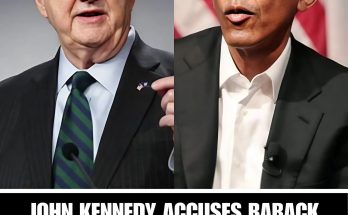LOS ANGELES, CA — For nearly three decades, the mystery surrounding Tupac Shakur’s death has haunted fans, fueled conspiracy theories, and kept the world guessing. Was the legendary rapper truly gunned down in Las Vegas, or did he pull off the greatest escape in music history?
Now, with Diddy’s empire crumbling under federal indictment, a former insider has come forward with claims that could rewrite hip-hop history forever. Gene Deal, Diddy’s ex-bodyguard, has broken his silence, suggesting that Tupac not only survived the infamous Vegas shooting, but outsmarted his enemies—including Diddy himself—and vanished into a life of exile.
The Empire Crumbles: Diddy Under Fire, Secrets Unravel
It’s a storyline ripped straight from a Hollywood thriller. Once the king of Bad Boy Records, Sean “Diddy” Combs now finds himself under the harsh glare of federal scrutiny, accused of racketeering, exploitation, and a web of crimes stretching back decades.
Court filings read like crime novels, implicating Diddy in everything from secret tapes to underworld dealings. His name has surfaced in sealed police transcripts nearly 50 times in connection to the night Tupac’s reign ended.
As Diddy pleads innocence in a New York courtroom, former allies are finally breaking their silence. The stakes have never been higher—and the timing couldn’t be more explosive. With Diddy’s empire on the brink, the ghosts of the East Coast vs. West Coast war are rising once again.
Tupac and Diddy: Rivalry, Betrayal, and a Million-Dollar Bounty
The relationship between Tupac and Diddy was never simple. At one point, the two were cool—industry insiders recall a time when Tupac considered signing to Bad Boy Records, drawn in by connections like Corey. But as tensions mounted, so did the stakes. Rumors swirled about a million-dollar check put on Tupac’s head, with Diddy allegedly telling associates he’d pay any price to remove his rival.
Keffe D, a notorious figure in the saga, claimed Diddy offered him a million dollars for the hit. House of Blues sightings placed Tupac and Diddy in close proximity, but the friendship had soured. Tupac, riding in a white Rolls-Royce, snubbed Diddy’s greeting—an icy moment that spoke volumes about the deepening feud.
Jean Deal, Diddy’s former bodyguard, recalls the tension. “I don’t give a if Pac got to die, Big got to die, or Suge Knight go to jail. Something’s got to change,” he overheard Diddy say, revealing a ruthlessness that went beyond business. The rivalry was no longer just about music—it was about survival.

The Night in Vegas: Setup or Smoke and Mirrors?
The official story is familiar: Tupac shot in a drive-by in Las Vegas, rushed to the hospital, and pronounced dead days later. But Deal’s account turns the narrative on its head. According to him, Tupac was never the naive hothead the media portrayed. He was playing a deeper game, channeling his “Makaveli” persona not just for art, but for survival.
Deal claims Tupac knew a setup was coming. With a bounty on his head and enemies closing in, he staged his own exit. The clues were always there, hidden in plain sight. Fans obsessed over the Makaveli album, its subtitle “The 7 Day Theory,” and the cryptic line: “Exit Tupac. Enter Makaveli.” Some even pointed out that rearranging the letters in Makaveli spells “Am Alive.”
The autopsy records only fueled speculation. The coroner listed Tupac at 6 feet and 215 lbs, but friends insisted he was 5’10” and 168 lbs. The cremator who supposedly handled Tupac’s body retired immediately and disappeared. The autopsy photo, with its blurred tattoos and odd angles, never convinced the public. Was the corpse even Tupac at all?
The Escape Plan: Black Panthers, Body Doubles, and Cuba
Deal’s revelations echo the wildest conspiracy theories—but with a new level of insider detail. He’s not alone in suggesting Tupac’s death was a masterful deception. Former security officer Michael Nice swore to TMZ that he personally smuggled Tupac out after the hit was ordered. Nice claimed Fidel Castro himself sanctioned the escape, approving a body swap to sell the illusion.
According to Nice, Tupac wasn’t killed in Vegas. He was flown out with Black Panthers at his side, first to Barbados, then to Cuba. Tupac, acting as co-pilot, shook hands with his rescuers like a man stepping into legend. Just as Nice promised to release proof, he was found lifeless under mysterious circumstances—a coincidence that only deepened the mystery.
The Black Panthers weren’t just a footnote in Tupac’s story—they were family. His mother, Afeni Shakur, was a Panther. His godfather was a militant organizer. His aunt, Assata Shakur, famously escaped prison and found sanctuary in Cuba. If anyone could orchestrate such an audacious escape, it was them.

Deal suggests the Vegas shooting was not chaos, but choreography—a signal for a carefully planned extraction. The chaos outside the hospital was a distraction. By the time Suge Knight walked out in bandages and shock, Tupac was already headed to a hidden runway, disappearing into the Caribbean night.
Why Hide? The Psychology of Exile
If Tupac survived, why remain hidden for so long? Deal’s answer is chilling: Diddy’s threats were real. The million-dollar bounty wasn’t just a rumor—it was a warning that nowhere in America would be safe. Forced to choose between disappearing or risking a public showdown, Tupac chose exile.
But exile is its own punishment. For a man who thrived on public energy and reinvention, decades of silence would erode his identity. Psychologists describe long isolation as a kind of rebirth—you don’t emerge as the same person. Tupac’s art was always about rebellion and survival, but exile might have sharpened those instincts into something darker: paranoia, distrust, and constant fear of betrayal.
The Evidence: Inconsistencies, Sightings, and Unanswered Questions
The cracks in the official story appeared early. Strange inconsistencies in the records, rushed cremation, and blurred photos kept the public guessing. Havana locals whisper about a man who looks uncannily like Tupac walking through old Havana in a bandana and shades. His beard is thicker, his build broader, but the eyes remain unchanged.
Others insist he’s been spotted in New Jersey, or even with Beyoncé and 50 Cent in grainy online photos. Most are dismissed as doctored, but they keep the belief alive.
Even Suge Knight, co-founder of Death Row Records and driver of the BMW Tupac was shot in, has hinted at the possibility. “No one’s been arrested because Tupac’s not gone. He’s somewhere smoking a Cuban cigar,” he once said.

The Ultimate Long Con: Tupac Outplays Diddy
Deal’s testimony turns Diddy from puppet master to pawn. Imagine Diddy sitting in boardrooms, convinced he eliminated his greatest rival, never realizing Tupac had sidestepped the bullet entirely. The East Coast vs. West Coast saga, long seen as a story of tragedy and loss, becomes a carefully crafted long con.
One insider didn’t hold back, insisting that the truth is being kept under wraps to protect powerful brands. They claim those who may have been involved in Diddy’s so-called “sessions” want to bury their secrets because exposure would destroy their image.
Deal summed it up bluntly: Tupac and Biggie had their differences, but it never went deeper than that. The bigger story was always happening behind the scenes.
What Happens If Tupac Returns?
If Tupac stepped out of the shadows tomorrow, would people even recognize him? Not just the changes in his face after decades, but in who he’s become. Could a man shaped by years of silence still hold the same ideals, or would he return with a worldview transformed by exile?
Some believe Tupac has a vault of unreleased footage, testimonies, and written accounts locked away—an archive that could obliterate Diddy’s defenses if it ever surfaced. Others think he’s been carefully plotting his return, waiting for the moment when it would hit the world like a thunderclap.
With Diddy’s empire in flames, prosecutors closing in, and former allies backing away, that moment may be closer than ever.
The Verdict: Illusion or Reality?
The whispers today are bolder than ever. What if the bullets in Vegas were just part of a cover, and the real Tupac has been living in the shadows for nearly three decades, waiting to reemerge? If that day comes, it won’t just be music history rewritten—it will be cultural history detonated in real time.
So, what do you believe? Could Tupac return and shake the industry to its core, or is this the greatest illusion of all time? The only certainty is that the story isn’t finished—and as Gene Deal’s revelations echo through the industry, the world is watching for the next chapter.



